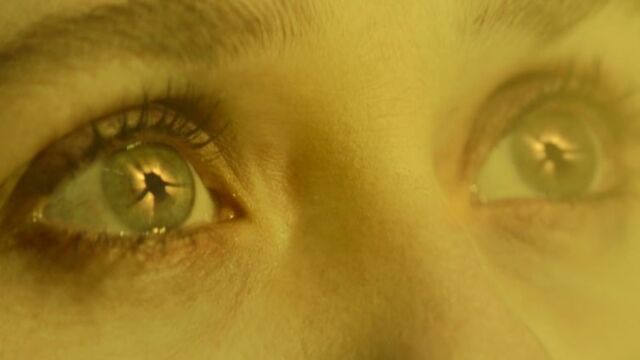It is unfortunately perhaps the only common thing between everybody on Earth, rich or poor. It is something that connects us all, and yet it's a very taboo subject. As you have probably gathered, we are talking about death.
Discover our latest podcast
We still don't know what happens to our spirit after our last day on Earth, but we can observe some changes in the body, a few days or hours before and after a person takes their last breath. A doctor has revealed what happens to our eyes when we pass away, and it's unexpected to say the least.
What happens to our eyes before death?
If you are supporting a dying loved-one, you may see changes in their eyes as they get nearer to the end. Their eyes can become 'glassy', and produce too many tears. They may also appear unfocused and hazy, making them look unfamiliar to their loved-ones.
Finally, a dying person's eyes can also become 'milky' as their cornea turns opaque. Although this phenomenon mostly happens to people who have had an underlying condition such as cataracts, it will eventually happen to everyone after death.
How about after we die?
Forensic pathologist Dr. Judy Melinek has spoken to The Healthy about what happens to certain parts of the body after we die. The doctor explains that while some of our organs expire very quickly once we die, others can live on for hours. Indeed, our eyes can survive for up to fifteen hours after our death, which allows for life-saving transplants. According to the Eye Bank Association of America, most cornea transplants take place in the week following the donor's death.
In the days after you die, your cornea becomes opaque and your eyeballs retreat into the skull as the blood flow is cut off. According to Dr. Melinek, the white part of our eyes can change colour as it dries out, usually a few hours after death. This phenomenon can also be known as the 'dead eyes'. She told The Healthy:
Many people die with their eyes open, and when the whites of the eyes start to dry out they turn blue or gray. This is called ‘tache noir’ and is frequently part of forensic board examinations—to see if the pathologists recognize it as normal post-mortem change or if they mistake it for a disease state or intoxication.
If you are a carer for your loved-ones, don't hesitate to reach out to Carers UK for support and advice, at 0808 808 7777.
Read more:
⋙ Forensic pathologist explains that your eyes remain viable for fifteen hours after death
⋙ US Sergeant recalls his near-death experience: He saw three images flash before his eyes
⋙ Here's what your eye colour reveals about your health, and it may surprise you
Sources used:
Love to Know: What Happens to the Eyes of a Dying Person?
Carers UK: Carers UK information and support
The Healthy: 16 Bizarre Things That Happen to Your Body After You Die
Eye Bank Association of America: Frequently Asked Questions about Eye Banking, Corneas, and Transplantation















